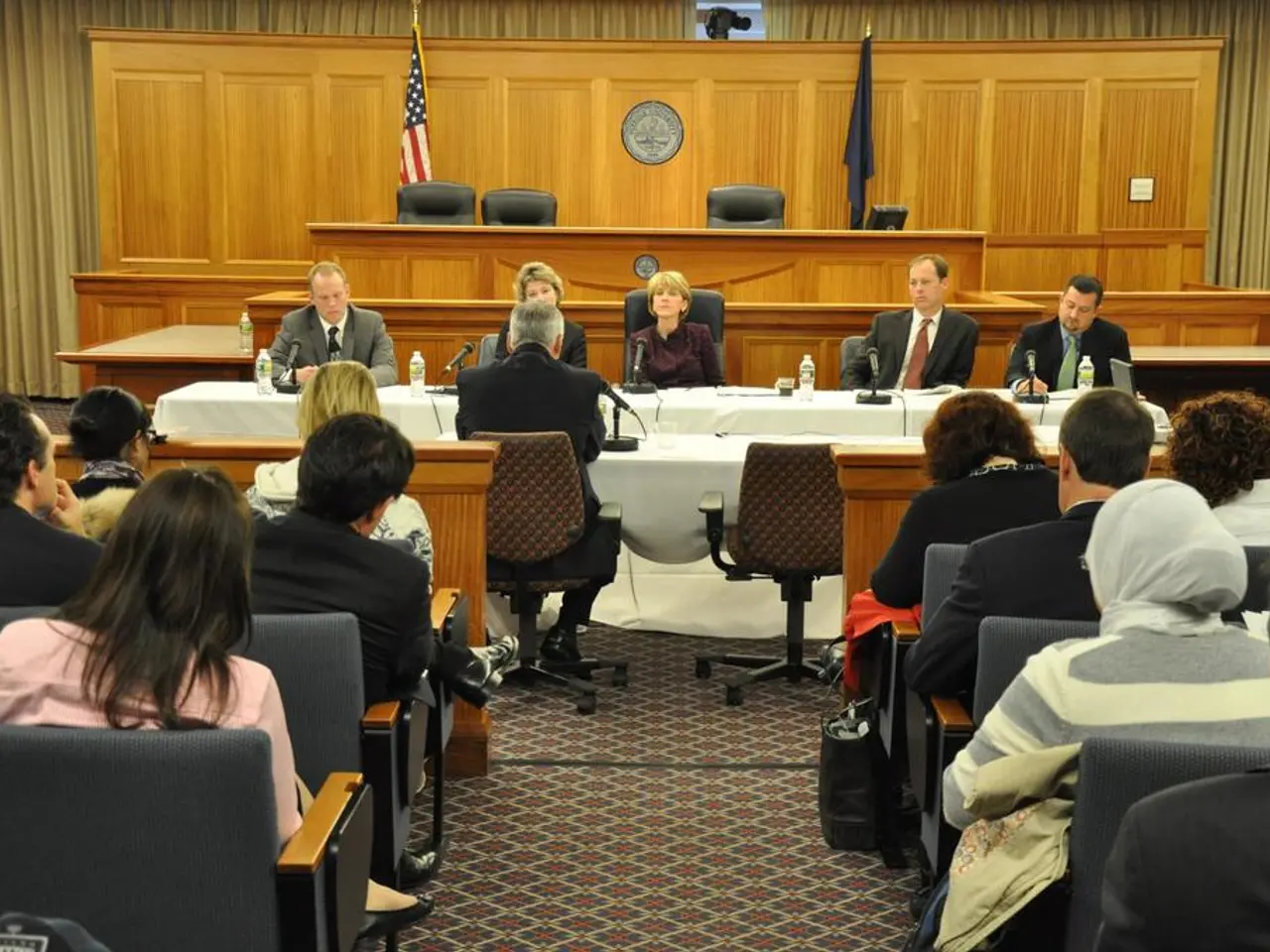Stresses Importance of Collaborative Relationship with Coalition Partner SPD - Emphasizes the importance of collaborative relationships with coalition partners
In the heart of Germany, the black-red coalition, composed of Chancellor Friedrich Merz (CDU) and the Social Democrats (SPD), continues to function with a focus on shared governance, particularly in security and fiscal policy. Since Merz took office in April 2025, the coalition partners have been working together under a detailed coalition agreement, outlining their common priorities for the legislative period.
Central to these priorities is a tougher migration policy and a significant increase in defense spending from 2% to 3.5% of GDP within five years. Merz's emphasis on strengthening international partnerships and the Bundeswehr necessitates coordinated efforts with SPD leaders such as Vice Chancellor and Finance Minister Lars Klingbeil and Defense Minister Boris Pistorius.
Despite some political pushback and societal challenges, the coalition has maintained a good working relationship, as Merz recently clarified. The Chancellor emphasized optimism, solidarity, and commitment to NATO obligations, including support for Ukraine.
However, a recent event, the Schützenfest in Arnsberg-Niedereimer, has not been directly linked to the coalition or cooperation between Merz and the SPD. The Schützenfest, a three-day cultural event, began on Saturday, with Merz attending a concert in honor of the Schützenkönigspaar.
Merz, who is originally from Sauerland and currently resides in Arnsberg, has shown a dedication to his regional roots, having stated during his campaign that he would maintain his main residence in Arnsberg if elected Chancellor. His wife, Charlotte, is a judge in a town in the Sauerland region.
The Chancellor's commitment to his constituency was evident in the Bundestag election, where he won his seat in the Hochsauerland by a large margin. Despite previous statements about his desire to continue as Chancellor in 2027, doubts have been raised among some guests about his intentions.
Nevertheless, Merz remains optimistic about the political center's ability to work together, govern together, and ensure stability in Germany's democracy. His focus remains on the coalition's shared goals and the stability of the black-red coalition.
In the realm of policy-and-legislation, the black-red coalition, led by Chancellor Friedrich Merz and the Social Democrats, is devoting significant attention to vocational training. Under their coalition agreement, they aim to boost vocational training opportunities across EC countries, recognizing it as a cornerstone for a skilled workforce and economic growth.
In the midst of political debates and general news, it is essential for Germany, under Chancellor Merz, to foster a conducive environment for vocational training, ensuring that its citizens are well-prepared for the jobs of the future. This focus should not be overlooked amidst discussions on migration policy, defense spending, or other pressing issues.





